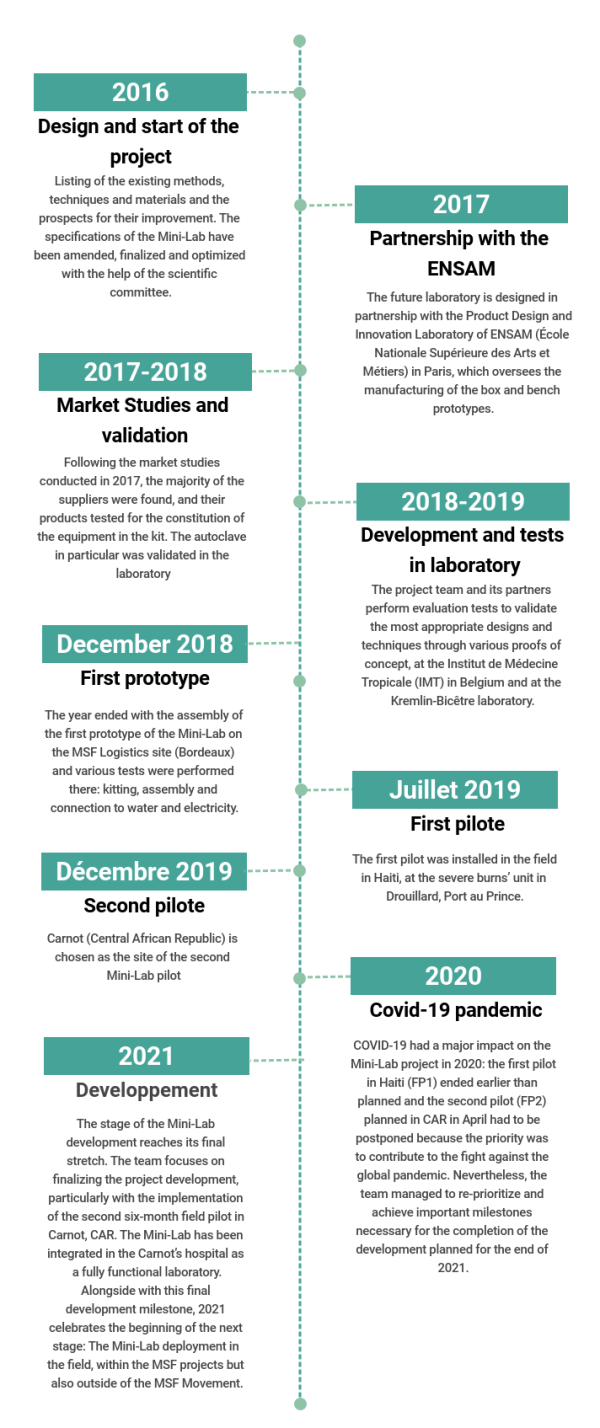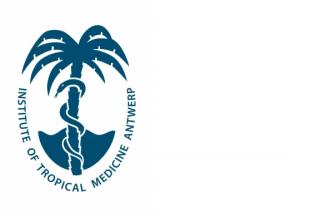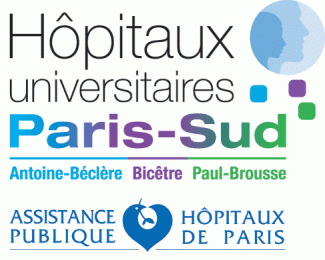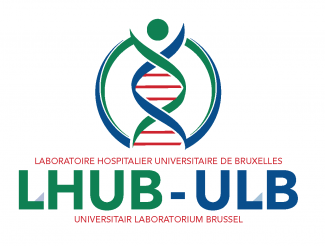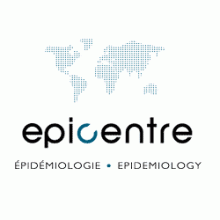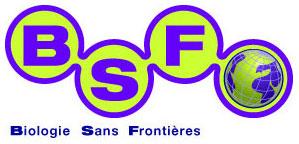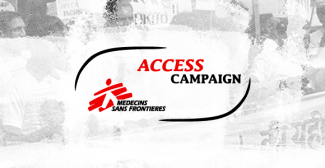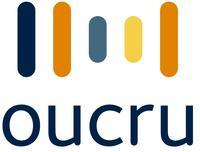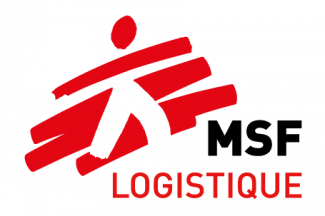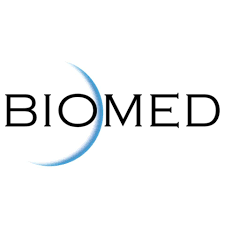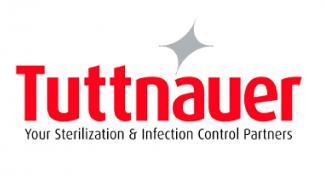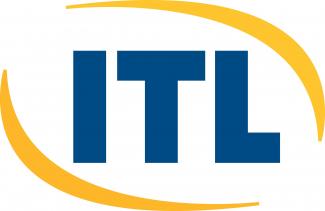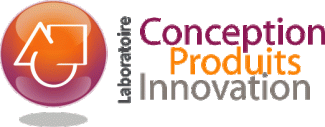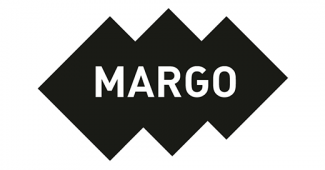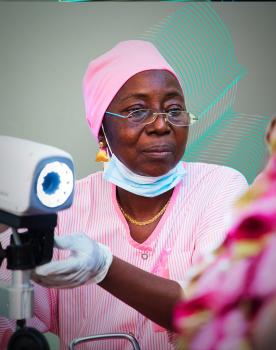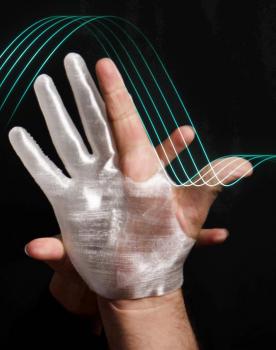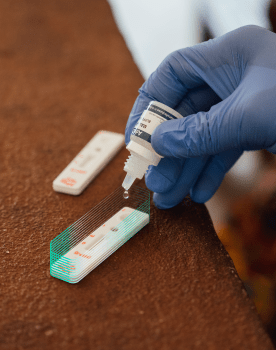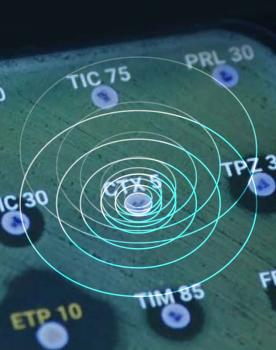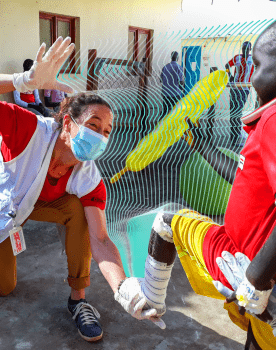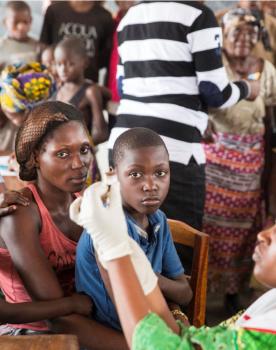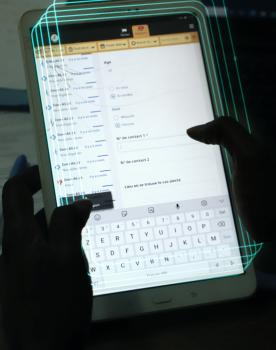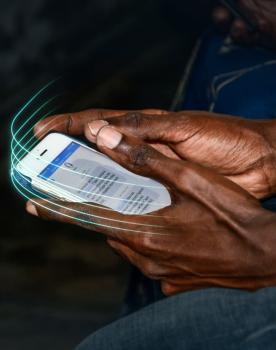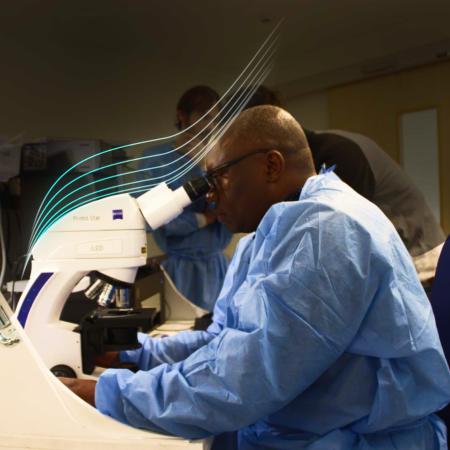
MSF
Mini-Lab
In brief
[Funding Completed / 2016-2019]
The purpose of the Mini-Lab project is to design and produce a small-scale, autonomous, transportable clinical bacteriology laboratory which is affordable and above all suited to the MSF’s fields of intervention. This concept, developed by MSF with its partners, is also intended to be made available to health care operators in countries with limited resources.
The Mini-Lab project hosted by MSF has been able to benefit from other funding mechanisms and the Foundation has been able to redirect its funding to other emerging initiatives.
Status of the project
News
In detail
The Mini-Lab makes it possible for bacteriological tests, essential to the diagnosis of certain infections, to be carried out in field conditions. It will help reduce the phenomenon of antibiotic resistance by adapting the prescription of antibiotics to the encountered resistances and will thus improve care for patients.
The Mini-Lab will also be be used to support clinical monitoring of antibiotic resistance. It will gather data to improve empirical treatment guidelines and assist in field studies on performance diagnosis, infections and prevention strategies. The target population is hospitalized patients: seriously ill children co-infected with malaria, burns patients with suspected septicaemia, patients with HIV and suffering from fever, etc.
The Mini-Lab combines simplified logistics with robust techniques. It meets the clinical needs of countries with moderate or low resources (LMICs) in which conventional clinical bacteriology is difficult to set up. These techniques are accessible to trained but non-specialist users.
How does it work ?
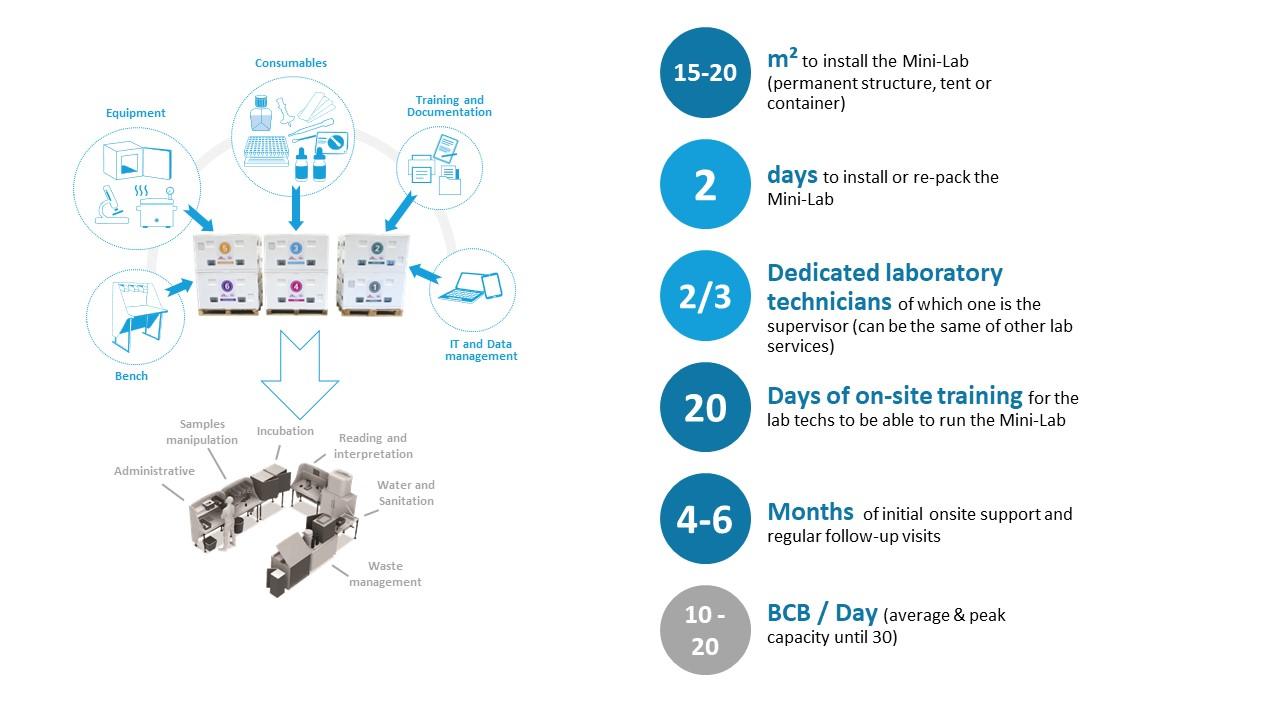
What were the main stages of the project ?
